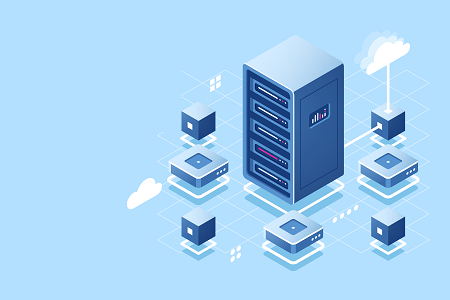Salient IT Services › Cloud Data Backup Sacramento
What you need to know about cloud data backup in Sacramento
Given that most organizations, especially SMBs, are now very much cloud-first, if not cloud-native, it makes sense to use cloud data backups. With that in mind, here is a quick guide to what you need to know about cloud data backup in Sacramento.
Good data governance is now a must
Even if you’re not in a formally-regulated industry, you are almost certainly legally mandated to enforce robust governance of any sensitive data you hold. For completeness, this includes the sensitive data of your employees. You can however usually do whatever you like with your general data.
If you’re currently backing up to physical devices, then the only noticeable impact is likely to be the length of time needed for your backups and restores. In the cloud, however, you’re paying for storage and bandwidth and every byte counts. This means you only want to backup actual production data, i.e. data you can clearly identify as being active.
Dormant data should be in an archive – if you keep it at all. If you still have a mound of “legacy data”, then definitely put that into an archive with a view to deleting it if nobody claims it by the time all compliance deadlines have passed. Continually backing it up is just going to increase costs as well as impact your recovery point objective and recovery time objective.
If you’re in a data center you can still back up to a cloud
There are probably very few data centers left these days and they probably only exist because their owners are still in the process of moving to the cloud. Even if you are committed to your data center, backing up to the cloud can still make a lot of sense as it saves you from having to transport physical media to an offsite location and then bring them back again if you need them.
This obviously makes it massively easier to shorten your RTO and can also go a long way to shortening your RPO. If you wanted you could still back up to a physical device for your local copy. This could reduce costs and give you reassurance that you could restore even without an internet connection.
If you’re in a public cloud you can backup to another public cloud
If you’re in a public cloud then technically you could backup to a physical device or to a private cloud, but it’s hard to see any circumstances which would justify doing so. You could potentially archive to a physical device instead of or as well as to the cloud, but this is a very different situation.

Your main decision is whether you are going to use a standalone software solution to perform backups to the storage option of your choice or if you are simply going to use an all-in-one Backup-as-a-Service solution.
If you opted for the former, you would need to make sure that your chosen software will run in the public cloud. Some backup software solutions work perfectly well in this environment but it is by no means guaranteed. You would also have to research your storage options and make sure that you chose the one(s) which was/were right for you and, of course, you would have responsibility for updating them if any circumstances changed. With BaaS, your costs might be a bit higher, but you would have simplicity and convenience.
If you’re in a private cloud you may be able to backup to a public cloud
As with the public cloud, if you’re already in the cloud then it’s hard to see a justification for backing up to a physical device. It is easy to see an option for backing up to a private cloud, especially if you’re already running one for disaster-recovery purposes.
It may, however, be worth considering the option of backing up to a public cloud. This is often possible, even for sensitive data, because you can encrypt it on your own servers and keep it encrypted until it is either used or deleted. This means that you cannot work with the data in the public cloud, hence you cannot use it as a disaster-recovery solution.
You’d, therefore, have to balance the cost-effectiveness of the public cloud against the fact that the added complexity of having to set up a second private cloud as a disaster-recovery solution and link your public cloud to both to keep all your data in sync.
In the private cloud, you will have a free choice of standalone backup software solutions and BaaS and the same considerations apply as with the public cloud, essentially, the former may be more cost-effective but the latter may be more convenient.
If you’d like to speak to a reputable and experienced cloud data backup provider in Sacramento, please click here now to contact Salient IT.


 (3 votes, average: 3.67 out of 5)
(3 votes, average: 3.67 out of 5)
